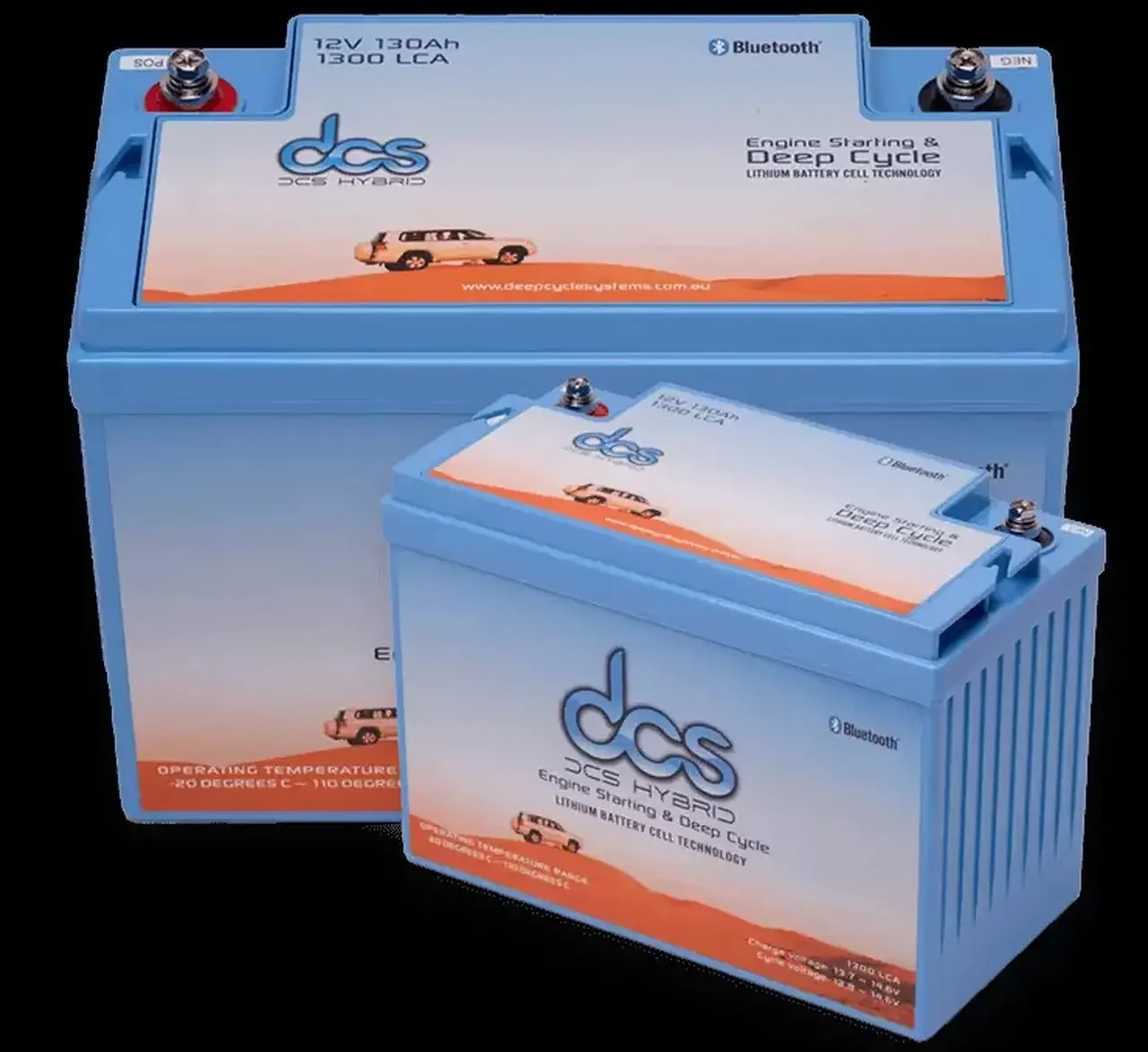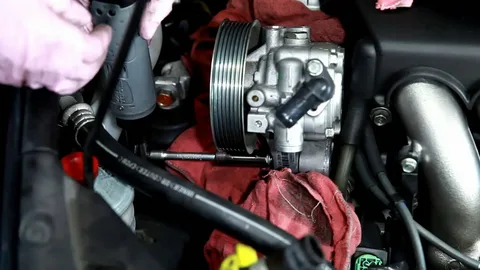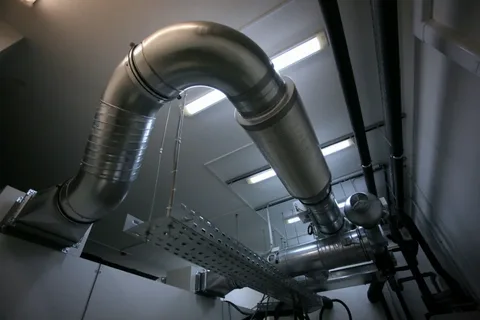Are you ready to supercharge your adventures and power up your life? Whether you’re an avid camper, a boating enthusiast, or simply looking for reliable energy storage solutions at home, understanding deep-cycle batteries is essential. In this ultimate guide, we’ll delve into the world of 200Ah deep cycle batteries—the heavyweights of energy storage that can keep your devices running longer and stronger. From exploring their benefits and applications to uncovering tips on maintenance and selection, we’re here to help you unlock the full potential of these powerhouse components.
What is a 200Ah Deep-Cycle Battery?
A 200Ah deep-cycle battery is a powerful energy storage solution designed to deliver consistent power over an extended period. The “200Ah” refers to its capacity, meaning it can provide 200 amperes for one hour or less amperage over longer durations.
These batteries are designed to handle repeated discharges and recharges without significant deterioration. This makes them ideal for applications where sustained energy output is crucial, such as in solar power systems, RVs, and marine vessels.
Unlike starting batteries, which deliver quick bursts of power, deep-cycle batteries focus on long-lasting performance. They play a vital role in off-grid living and backup power situations by ensuring reliable access to electricity when needed most.
Benefits of Using a 200Ah Battery
One of the standout advantages of a 200Ah battery is its impressive capacity. This powerful storage solution can supply energy for extended periods, making it ideal for various applications like RVs, boats, and off-grid systems.
Efficiency is another major perk. These batteries are designed to be discharged deeply without damaging their lifespan. They provide consistent power output until nearly depleted, ensuring you get the most from your energy source.
Durability also plays a key role in their appeal. Built to withstand repeated charge cycles, 200Ah deep-cycle batteries offer long-term reliability. With proper maintenance, they can last significantly longer than traditional lead-acid batteries.
Moreover, they contribute to sustainability by being compatible with renewable energy systems like solar panels. Harnessing the sun’s power becomes easier when paired with these robust batteries. Embracing this technology helps reduce reliance on fossil fuels while providing dependable performance wherever needed.
Types of Deep-Cycle Batteries
Deep-cycle batteries come in several types, each designed for specific applications and preferences.
Flooded lead-acid batteries are the most common. They require regular maintenance, including checking water levels and equalizing charges. Despite this, they offer robustness and cost-effectiveness.
AGM (Absorbent Glass Mat) batteries provide a sealed option with lower maintenance needs. Their design allows for better vibration resistance and faster charging times, making them perfect for marine or RV applications. Gel deep-cycle batteries utilize silica gel to immobilize electrolytes. This makes them spill-proof and safer to use in various environments, though they may be more sensitive to temperature extremes.
Lithium-ion batteries have gained popularity recently due to their lightweight nature and longer lifespan. They also boast faster charging capabilities but often come at a higher price point. Understanding these options helps you select the right battery based on your unique energy requirements. Each type offers distinct advantages that cater to different user needs.
Factors to Consider When Choosing a Battery Deep Cycle 200ah
Several factors must be considered when choosing the correct deep-cycle battery for your specific needs. Here are some key points to keep in mind when looking for a battery deep cycle 200ah:
1.Capacity
The first and most important factor to consider is the battery’s capacity. This refers to how much energy the battery can store and deliver over time. A 200-ah battery has a higher capacity than other sizes, making it ideal for applications requiring longer run times or higher power demands. However, it’s crucial to also consider your specific power requirements before purchasing a 200-ah deep cycle battery.
2. Chemistry
Different types of chemistry are used in deep-cycle batteries, such as lead-acid, lithium-ion, and AGM (Absorbent Glass Mat). Each type has its advantages and disadvantages, so it’s essential to understand their differences before making a decision. For example, lead-acid batteries are more affordable but require regular maintenance, while lithium-ion batteries have a longer lifespan but come at a higher cost.
3. Quality
It is essential to choose a high-quality deep-cycle battery from a reputable manufacturer. This ensures that you get a reliable and long-lasting product that can withstand heavy use and extreme conditions. Do your research and read reviews from other customers before making your purchase.
4. Durability
Deep-cycle batteries are designed to provide sustained power over an extended period of time without rapidly losing their capacity. Look for batteries with thicker plates or reinforced construction if you need extra durability for rugged outdoor use or off-grid applications.
5. Cycle Life
The number of charge/discharge cycles a battery can go through before reaching the end of its life is known as its “cycle life.” Deep-cycle batteries typically have more extended cycle lives than regular car-starting batteries because they’re built with thicker plates explicitly designed for deeper discharges. Check the cycle life of a battery before buying it, especially if you plan on using it frequently.
Maintenance Tips for Your 200Ah Deep-Cycle Battery
Proper maintenance is key to maximizing the lifespan of your 200Ah deep-cycle battery. If your lead-acid battery is flooded, start by regularly checking the fluid levels. Maintaining appropriate electrolyte levels prevents damage and ensures optimal performance.
Keep the terminals clean and free from corrosion. A mixture of baking soda and water can help remove any buildup, ensuring a solid connection that enhances efficiency. Temperature plays a crucial role in battery health. Store your battery in a cool, dry place when not in use. Extreme temperatures can affect its capacity and lifespan.
Use a quality charger specifically designed for deep-cycle batteries. This helps prevent overcharging, which could significantly shorten the battery’s life. Lastly, perform regular load tests to monitor your battery’s condition. Identifying issues early enables timely interventions before they escalate into serious problems.
Common Misconceptions about 200Ah Deep-Cycle Batteries
Many people think all batteries are the same, but this couldn’t be further from the truth. A common misconception is that a larger capacity automatically means better performance. While a 200Ah deep-cycle battery does offer substantial power, it also requires proper usage and care to deliver optimal results.
Another myth is that these batteries are only for marine or RV applications. They serve various purposes—from solar energy storage to backup power systems in homes.
Some believe deep-cycle batteries need frequent charging cycles. However, overcharging can damage them and reduce their lifespan. Lastly, many assume maintenance-free means no attention at all. Regular checks on terminals and electrolyte levels (for flooded types) are essential for longevity and efficiency in any battery system.
How to Extend the Lifespan of Your 200Ah Deep-Cycle Battery?
To maximize the lifespan of your 200Ah deep-cycle battery, start by ensuring proper charging. Use a compatible charger and avoid overcharging, which can damage the battery.
Temperature control is crucial, too. Store your battery in a calm environment when not in use. Extreme heat or cold affects performance and longevity.
Regular maintenance checks go a long way. Inspect terminals for corrosion and clean them regularly to ensure optimal connectivity.
Monitor the depth of discharge as well; aim for shallow discharges whenever possible. This practice significantly preserves battery health. Finally, consider investing in a battery monitor system. It provides real-time data on voltage and capacity, helping you make informed decisions about usage and care.
Is a 200Ah Deep-Cycle Battery Right for You?
When considering alternative power sources, many options come to mind. Solar panels, wind turbines, and generators are popular choices. Yet, each has its pros and cons.
A 200Ah deep-cycle battery can effectively complement these alternatives. It stores energy generated from renewable sources for later use. This flexibility means you can harness solar or wind energy even when the sun isn’t shining, or the winds aren’t blowing. However, it’s vital to assess your energy needs first. Do you require consistent power for essential devices? Or is occasional backup sufficient?
Additionally, think about space and weight restrictions. A 200Ah battery may be bulky but offers substantial capacity for off-grid adventures or emergency situations. Understanding your unique requirements will help determine whether a 200Ah deep-cycle battery aligns with your lifestyle and energy goals.
Conclusion
A 200Ah deep cycle battery can be an excellent choice when considering power solutions for your needs. Its robust capacity makes it ideal for various applications, from renewable energy systems to recreational vehicles and marine use. Understanding the benefits and types of these batteries helps in making informed decisions. You must also weigh maintenance requirements, lifespan expectations, and compatibility with your existing setup. Addressing common misconceptions about deep-cycle batteries ensures clarity as you explore options that suit your lifestyle or project demands.
FAQs
1. What is a 200Ah deep cycle battery?
A 200Ah deep-cycle battery is a type of rechargeable battery designed to provide a continuous supply of power over an extended period of time. Its capacity is 200 ampere-hours (Ah), which means it can deliver a constant current of 1 amp for 200 hours or 10 amps for 20 hours.
2. How does it differ from other types of batteries?
Unlike traditional car batteries designed for short bursts of high power, deep-cycle batteries are built to deliver consistent and reliable power over an extended period. This makes them ideal for use in applications such as renewable energy systems, RVs, marine vessels, and off-grid cabins.
3. What are the advantages of using a 200Ah deep-cycle battery?
The main advantage of using a 200Ah deep-cycle battery is its ability to provide long-lasting power without frequent recharging. It also has a higher cycle life compared to traditional lead-acid batteries, meaning it can withstand more charge-discharge cycles before needing replacement.




